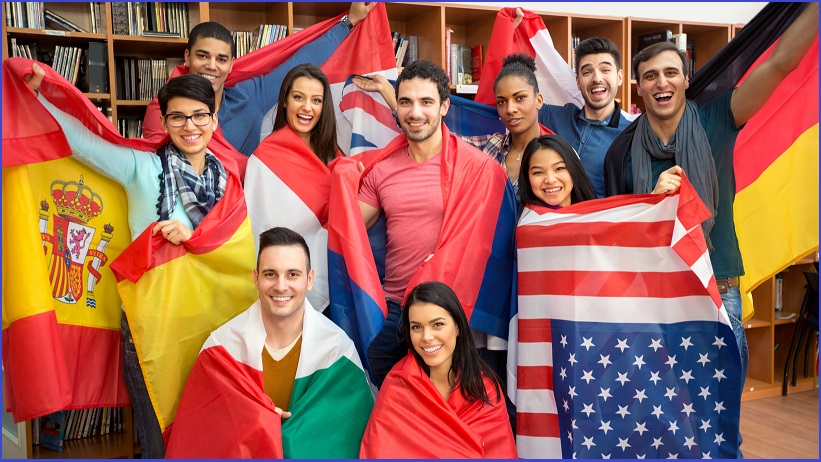Special government approval has enabled 14 NSW and ACT universities to collaborate on a pilot program that will bring 250 international students back to Australia per fortnight, finally promising relief to a higher-education sector that has been eviscerated by pandemic-era travel bans.
Interim approval from the ACCC will allow the institutions to collude for what ACCC chair Rod Sims called a “fair and efficient system to get these international students back to Australia”.
Working together as a bloc, the universities will prioritise the return of students whose courses require practical or on-site elements – making it easier for them to co-ordinate the return of students through activities such as buying blocks of airplane tickets and allocating them to the overseas students.
A single travel agent will be jointly appointed to facilitate return travel, with students paying for the commercial or chartered flights using a dedicated platform to be established by the travel provider.
The alternative – relying on students to book their own accommodation and manage their quarantine provisions independently – makes demand harder to predict and would make it harder to prioritise students who need to be in Australia for face-to-face learning.
“While some students are able to complete their studies offshore via online learning, there are a significant number of international students whose studies include on-site or practical components,” the formal authorisation notes, with medicine, science, engineering and nursing students cited as examples.
Each of the participating universities – whose collective enrolments of over 469,000 students were savaged after pandemic border closures blocked NSW’s 250,000 international students from returning for their studies – will determine which courses of study will be prioritised.
Students must hold a valid student visa to be eligible, and will stay in purpose-built accommodation to complete the required 14-day quarantine period.
The university sector will manage all costs of the program, which will be run alongside the existing general repatriation program from as early as next month and is expected to increase to 500 students per fortnight by year’s end.
“International education is our second most valuable export and we need to do what we can to help students return and revive this sector as quickly as possible,” NSW Treasurer Dominic Perrottet said in announcing the pilot program.
Closed borders are said to be costing NSW as much as $1.5b per month.
Skills gap a national priority
The 12-month authorisation follows on the heels of the federal government’s May publication of protocols and preconditions for international student arrivals, which includes an acknowledgement that there is no Australian Government funding available to support the return of the international students.
Students will be required to have enough money to support themselves through their studies, and will not be eligible for Commonwealth financial support – with institutions obligated to inform students that part-time work can be hard to come by in the current economic climate.
Despite the broad discussion about technologically-driven vaccine passports as a facilitator of international travel – and the availability of digital certificates for fully-vaccinated Australians – the government protocols do not mention vaccination at all.
This suggests that students will not be required to be vaccinated before being allowed to participate in the program.
Universities will be required to address a range of other requirements, including the provision of student health and wellbeing support that includes “virtual social activities”.
Reflecting the hybrid learning requirements of the current environment, small-group sessions will be administered in person, but larger lectures are likely to be given online to maintain social distancing.
The program is the first concrete step towards bringing back the estimated 210,000 international students that have been stopped from returning to Australia to complete their studies.
Australia’s higher-education sector is particularly exposed to declines in international student numbers, which comprise more than 20 per cent of students at most Australian universities and nearly half the enrolments at several institutions.
By comparison, United States universities have around 1 million international students – less than twice Australia’s 663,000 – comprising just 5.5 per cent of a student population that has suffered the dual hit of COVID-19 and a xenophobic Trump presidency.
The loss of overseas students has already cost Australia an estimated $18 billion, gutting a massively profitable sector that contributed $37.6b to Australia’s economy in fiscal 2018-19 – when the sector was marking its fifth consecutive year of double-digit growth.
Rebuilding the sector will be critical to reinvigorating efforts to close a technology workforce gap that will, the recent ACS Australia Digital Pulse 2021 report found, fall short by 53,000 workers in coming years.










